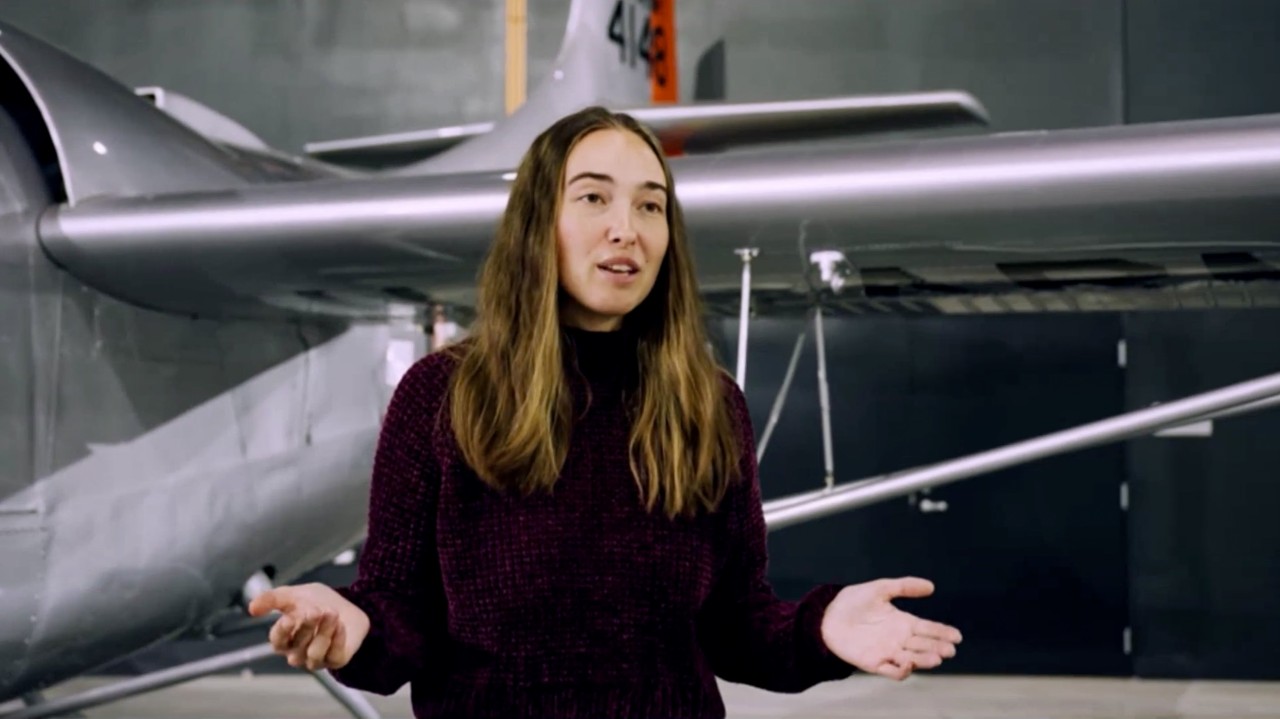
Impossible Engineering: UC student explains tech behind Osprey precursor
Aerospace student explains why Bell XV-3 was groundbreaking
The Science Channel series "Impossible Engineering" turned to University of Cincinnati aerospace engineering student Lynn Pickering to explain the technology behind a flying marvel of aviation: the Bell XV-3.
Pickering, a doctoral student in UC's College of Engineering and Applied Science, helped interpret the groundbreaking technology behind the twin-rotor aircraft that was a precursor of the Bell Boeing V-22 Osprey for Season 10 of "Impossible Engineering."
For the episode, Pickering went to the National Museum of the U.S. Air Force in Dayton, Ohio, to see the last known XV-3, developed in 1955.
"Look at this thing! It looks straight out of a sci-fi film!" Pickering said.
Like the Osprey, the Bell XV-3 could take off vertically. Once airborne, it could rotate its twin propellers vertically, providing the longer range and faster speed of an airplane.
"This aircraft is actually the first attempt at tilt-rotor technology," Pickering said.
Pickering explained the many design and engineering challenges tilt-rotor technology presented. The aircraft were prone to structural and vibration issues.
"This is one of the most exciting pieces of aviation engineering I've ever seen," Pickering said. "The XV-3 might just be one of the most important pieces of aviation engineering. It took this concept of combining two technologies, which a lot of people thought impossible, and proved it was possible."
"Impossible Engineering" is streaming on the Science Channel.

UC aerospace engineering student Lynn Pickering helps explain the engineering behind the world's first tilt-rotor aircraft, the Bell XV-3, for the Science Channel show "Impossible Engineering." Photo/Science Channel
Related Stories
IMPACT Innovation at IDD Education center celebrates milestone
April 11, 2025
The IDD Education Center’s IMPACT Innovation program celebrates a major milestone as associate Haley secures a position at Adrian Durban Florist. Through hands-on training, mentorship, and community partnerships, IMPACT Innovation helps adults with autism develop independence, communication, and workplace skills. Haley’s mother shares how the program has supported her daughter's growth, while program director Genna Kieper highlights the role of job coaching in Haley’s success. Adrian Durban Florist, a long-time partner, continues to be a champion. The IDD Education Center remains committed to expanding employment opportunities for individuals with disabilities.
Bradford pear trees look pretty, smell awful. Why are they...
April 2, 2025
WLWT talks to UC biology Professor Theresa Culley about Ohio's ban on the sale or planting of nonnative and invasive pear trees. The trees are showing up in many parks and wild areas where they are crowding out native species.
University launches UC Futures: Rural & Small-Town Scholars...
April 2, 2025
The University of Cincinnati has launched a new program to help introduce students in rural communities to the urban campus environment and support their next steps into higher education.
